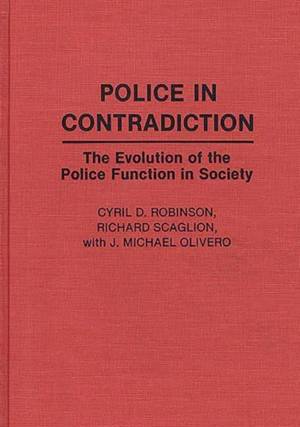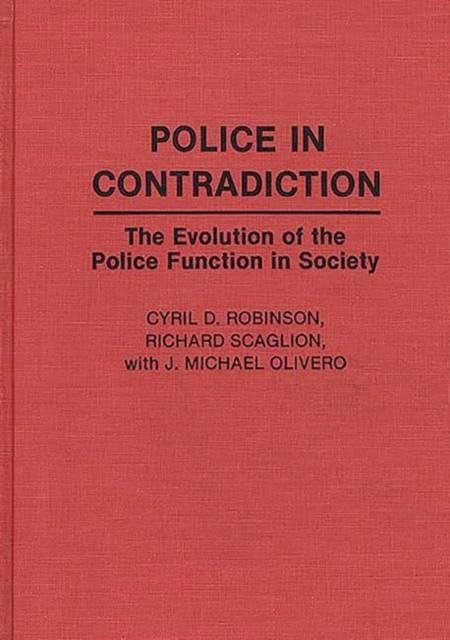
Bedankt voor het vertrouwen het afgelopen jaar! Om jou te bedanken bieden we GRATIS verzending (in België) aan op alles gedurende de hele maand januari.
- Afhalen na 1 uur in een winkel met voorraad
- In januari gratis thuislevering in België
- Ruim aanbod met 7 miljoen producten
Bedankt voor het vertrouwen het afgelopen jaar! Om jou te bedanken bieden we GRATIS verzending (in België) aan op alles gedurende de hele maand januari.
- Afhalen na 1 uur in een winkel met voorraad
- In januari gratis thuislevering in België
- Ruim aanbod met 7 miljoen producten
Zoeken
Police in Contradiction
The Evolution of the Police Function in Society
Cyril D Robinson, Richard Scaglion, J Michael Olivero
€ 110,45
+ 220 punten
Omschrijving
This book formulates a theory of the origin and evolution of the police function, using both historical and cross-cultural analysis. It explains the incremental changes in the police function associated with the transition from kinship-based to class-dominated societies, and examines the implications of these changes for modern police-community relations. It suggests that the police institution has a double and contradictory function: at the same time, and in the same society, it seeks to be the agent of the people it polices and of the dominant class. The authors critique community policing and suggest how communities may be reconstituted in order to create a community police. A comprehensive bibliography enhances this study for students, teachers, and professionals in the fields of criminal justice and sociology.
Specificaties
Betrokkenen
- Auteur(s):
- Uitgeverij:
Inhoud
- Aantal bladzijden:
- 216
- Taal:
- Engels
- Reeks:
Eigenschappen
- Productcode (EAN):
- 9780313288913
- Verschijningsdatum:
- 30/12/1993
- Uitvoering:
- Hardcover
- Formaat:
- Genaaid
- Afmetingen:
- 156 mm x 234 mm
- Gewicht:
- 480 g

Alleen bij Standaard Boekhandel
+ 220 punten op je klantenkaart van Standaard Boekhandel
Beoordelingen
We publiceren alleen reviews die voldoen aan de voorwaarden voor reviews. Bekijk onze voorwaarden voor reviews.









